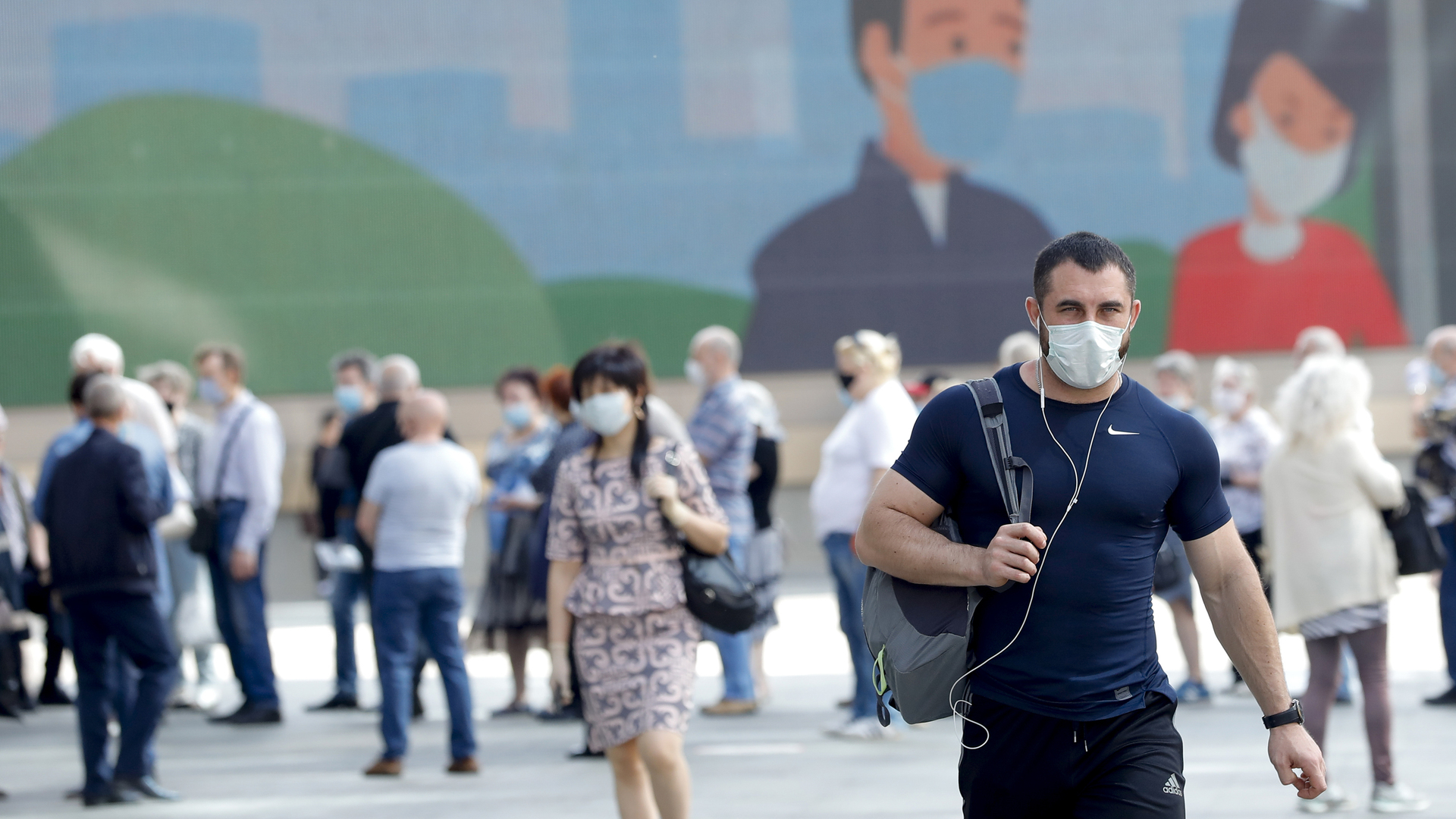Vaccination against coronavirus infection among Russians will be voluntary. This was stated by the head of the Ministry of Health Mikhail Murashko in an interview with Naila Asker-zade on the channel "Russia 1".
According to him, the country has a rather high interest in the vaccine, the number of supporters of vaccination has increased during the pandemic.
“In general, vaccination in any case proceeds only with the consent of the citizen himself,” the minister said.
The Minister noted that in almost all Russian regions a steady decrease in the incidence of COVID-19 was recorded.
“We still have the incidence rate today, although manageable, but there is one, and in general there are 112 thousand people in hospital beds in the country today,” Murashko said.
Earlier on July 8, the minister noted that Russia did not face a shortage of medical care, and now the medical facilities that were redeployed for patients with COVID-19 are returning to their normal working hours.
- globallookpress.com
- © PPI
During the interview, Murashko said that all patients who become ill acquire immunity to coronavirus, but its resistance depends on the severity of the disease - the more severe the course of the disease, the more resistant the formed immunity. He also spoke about the complications that can occur in people who have cured of the disease.
“The lungs became the most vulnerable organs and systems, the second significant problem, which also requires the help of a medical professional, is heart damage, in particular myocarditis,” the minister added.
Speaking about the vaccine from COVID-19, Murashko called 17 developments promising, noting that work on them is being carried out in more depth.
Earlier, the Ministry of Health approved the coronavirus infection drug Coronavir, developed by R-Pharm.
According to the State Register of Medicines, Coronavir (the international non-proprietary name Favipiravir) has antiviral activity against laboratory strains of influenza A and B. It also inhibits the SARS-CoV-2 virus, which causes a new coronavirus infection (COVID-19).
The drug is administered orally, 30 minutes before a meal. Its use for medical purposes is possible only in a hospital setting. "Coronavir" is contraindicated in patients with severe renal and hepatic insufficiency, during pregnancy, during breastfeeding, as well as persons under 18 years of age.
In turn, the company "R-Pharm" said that the drug fights directly with the virus itself, and not with the complications it causes.
“The drug inhibits the viral RNA polymerase involved in the replication of the virus,” the statement said.
They added that the effectiveness of the drug was confirmed in a clinical study in which patients with mild to moderate disease participated. The company noted good tolerability of the drug, indicating that among the side effects, reactions from the gastrointestinal tract and deviations of laboratory tests were observed.
In June, the Ministry of Health also registered a drug for the treatment of complications caused by COVID-19 Levilimab. The drug, intended for subcutaneous administration, is indicated for persons with a severe course of the disease who develop a cytokine storm - a deadly condition in which the body attacks its own cells during the immune response.
Dmitry Morozov, CEO of the BIOCAD drug manufacturing company, in a conversation with RT explained that Levilimab was created primarily for the treatment of rheumatoid arthritis.
“But since the world has experience using this type of drug to treat patients with COVID-19, we repositioned it on coronavirus and began clinical trials,” he said.
The head of the company said that Levilimab is a completely original Russian development.
Also in June, the Ministry of Health approved the Arepromlir drug, Promomed, for the treatment of COVID-19. As reported, the drug is an analogue of the drug “Favipiravir” developed in Japan.
On May 30, the Ministry received the first medicine in Russia against coronavirus infection called Avifavir.
Russian President Vladimir Putin, while addressing the Russians on June 23, said that 14 federal research centers were working on a vaccine against coronavirus. He emphasized that, despite the desire to receive the vaccine as soon as possible, first of all it is necessary to verify its effectiveness, reliability and safety.

